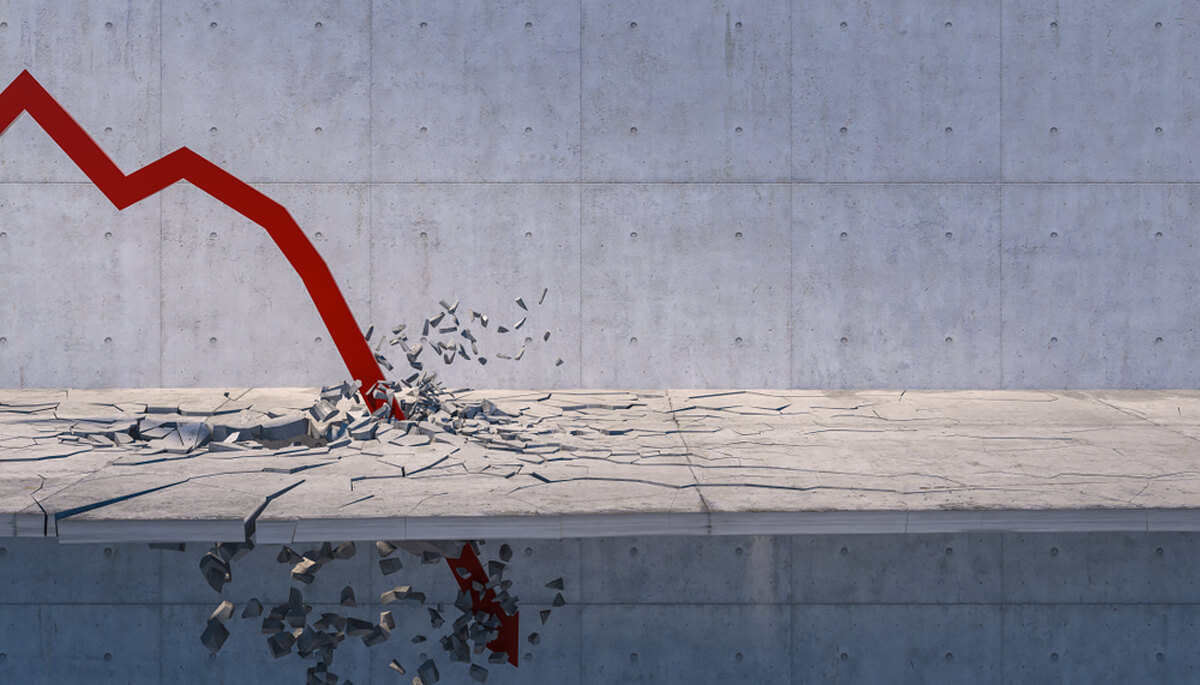The coronavirus pandemic caught the world off guard and has left the economy in shambles. Factories have temporarily shut down, businesses had to close doors to the public, work became remote, and schools have shifted to online classes, and so on. Many major events, conferences, and conventions were also canceled or delayed to ensure the safety of the public and prevent the virus from spreading.
Naturally, the cancelation or postponing of events has, in turn, impacted the photography industry as well, kind of like a chain reaction. In more ways than one, the COVID-19 pandemic has prompted a list of changes in the photo industry, and businesses will have to analyze weaknesses and inefficiencies so they can move forward and generate revenue.
Sales Hit the Floor
For starters, the pandemic put the already declining digital photography production market in a state of extensive stress as they're unable to make capital. While other industries such as food, catering, and technology are able to prolong their survival and continue operations, camera manufacturers aren't as fortunate.
Cameras and other digital photography equipment are non-essential consumer products, and therefore, consumers are not purchasing them during the pandemic. Going by the Camera & Imaging Products Association report from 2018 to 2020, the camera market has been taking blow after blow for quite a while now. Brands don't have the answers for when the market will stabilize and how many shipments the industry can expect within a year. If companies have these answers, then they can assign a price-per-unit, create a realistic budget, and fix production targets to put them back on track.
In the last few years, camera companies were cautiously treading those waters by making budget cuts and switching strategies so they can acquire a position in the market, but they've been unsuccessful. To put it simply, the arrival of the coronavirus will propel these brands towards the answers they seek and bring them face-to-face with some harsh realities that they've put off for a long time.
Major camera manufacturing companies need to become more mindful and strategic regarding their distribution and marketing of their products. From operating expenses to new product launches, there is a lot for companies to re-evaluate, so they're able to get back in the field and generate some revenue. If they don't fix their act and shift their focus on improving products that deliver a profit, then they might lose clients faster than when people transitioned from
coaxial cables to optic fiber.
The Impact on Photography Trade Shows
With the outbreak of the coronavirus worldwide, many events were axed to prevent the rise of infections. Amongst those events, the CP+ expo, NAB, and MWC were some major trade shows that were canceled as concerns over coronavirus grew exponentially. Following those announcements, UK's biggest photography trade show, The Photography Show, made a last-minute declaration that they'd be postponing the annual event to September for safety reasons. But these cancellations have only further highlighted a question that has been pestering companies,
photographers, and journalists; have trade shows lost their appeal?
To put things into perspective, let's look at some points.
Firstly, trade shows are quite expensive for attendees and guests. They're also extremely tiring, and with the limited time on your hands, it's very hard to try out any new gear. And this might surprise people, but most of these gadgets are normally found at Amazon, Best Buy, and even available for renting from LensRentals.
Secondly, it is yet to be determined whether or not the expense of setting up a stall for camera companies is worth the media attention and leads. It is essentially considered a risk to make such an investment, but Nikon and Fuji were among the ones willing to take that risk. However, they backed out from the Photokina event before the pandemic took over, and other companies are still struggling to figure out their next move. Of course, trade shows are a great place for people to meet and network with other members in the photo industry, but it's hard to assign a return over investment to networking.
The Supply Chain Struggle
There is a variety of manufacturers available in the market when it comes to the production of tech products. However, it happens quite often when several components of digital cameras are supplied by limited – in many cases, only one – companies. The reason behind this is that most camera companies operate on the just-in-time production approach. This allows them to deliver what the customers want, when they ask for it, and in the quantities requested, which results in fewer parts made available in stock. One major obstacle for tech companies employing this principle is that they're immediately influenced by any interruptions in the supply chain.
It was revealed in an
article that the majority of camera shutters are mass-produced by one or two manufacturers, and if those companies were to close doors for an extended period, then most camera makers would use up their stock of shutters in a short while. Imagine what happens when that stock is gone? The entire production of cameras would come to a full stop until the manufacturers of those parts are up-and-running again.
Companies should be more consciously aware of this possible downside and must implement strategies to prevent additional damage to the photo industry. This means diversifying supply chains, so there are more present manufacturers of camera parts and tech products in the market, as well as increasing stored inventory, so there are fewer chances of running out of in-demand products.
Wrapping Up
The novel coronavirus has had a drastic impact on the economy, and it will take a while for the world to recover from those shake-ups. The photo industry, amongst others, has also experienced its fair share of impact, and the already shrinking camera market has photographers across the globe suffering in this time of uncertainty. It's safe to predict that the photography industry has a long road to recovery, but only if it manages to make smart and calculated moves.
Author Bio:
Arslan Hassan is an electrical engineer with a passion for writing, designing and anything tech-related. His educational background in the technical field has given him the edge to write on many topics. He occasionally writes blog articles for Dynamologic Solutions,
A software house in Pakistan.



